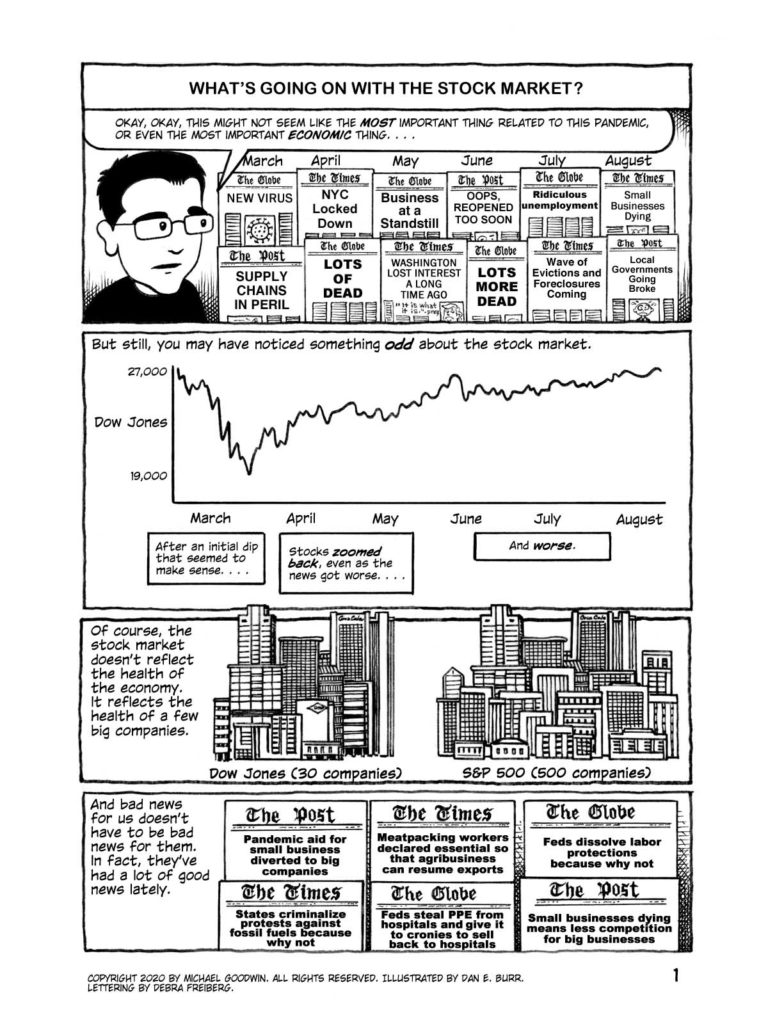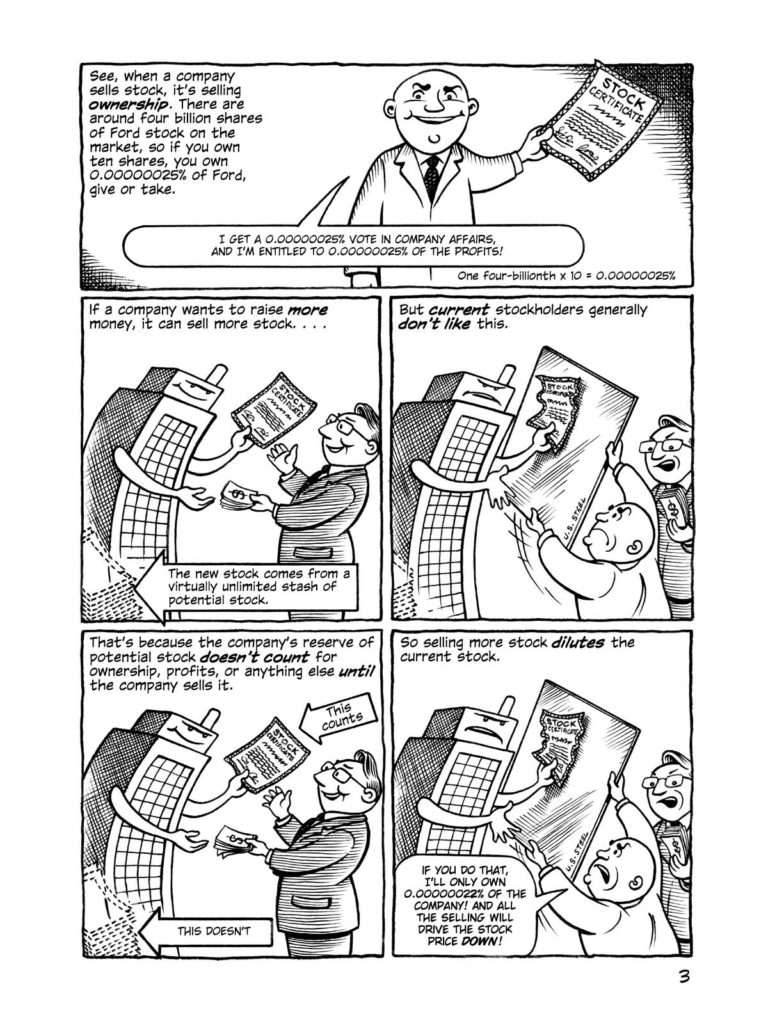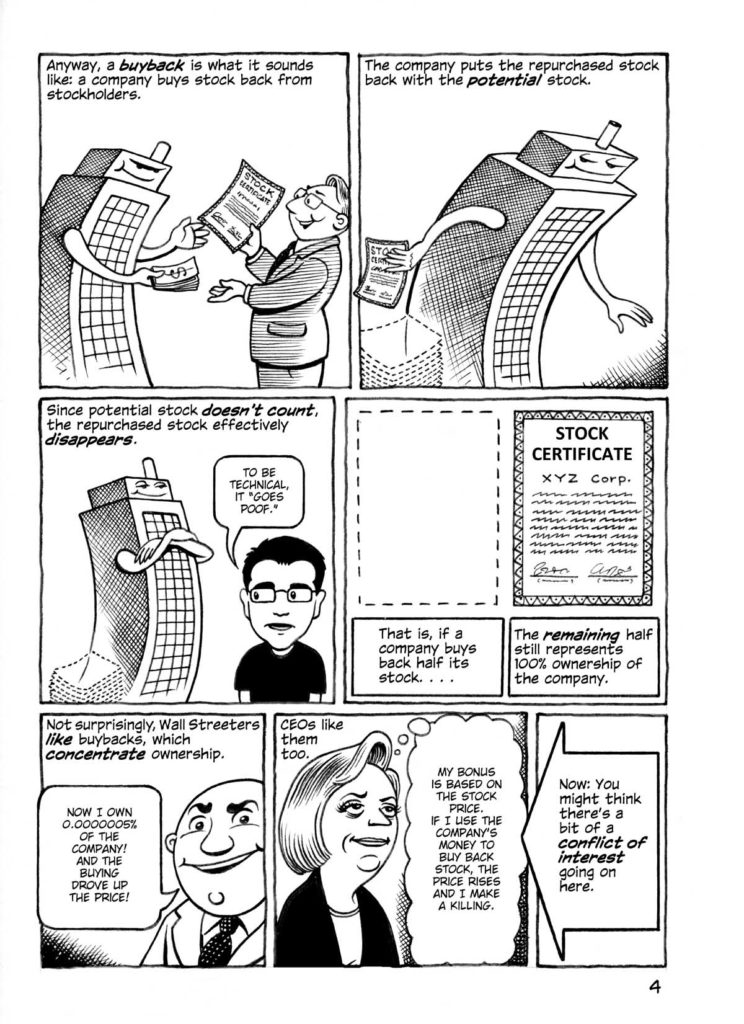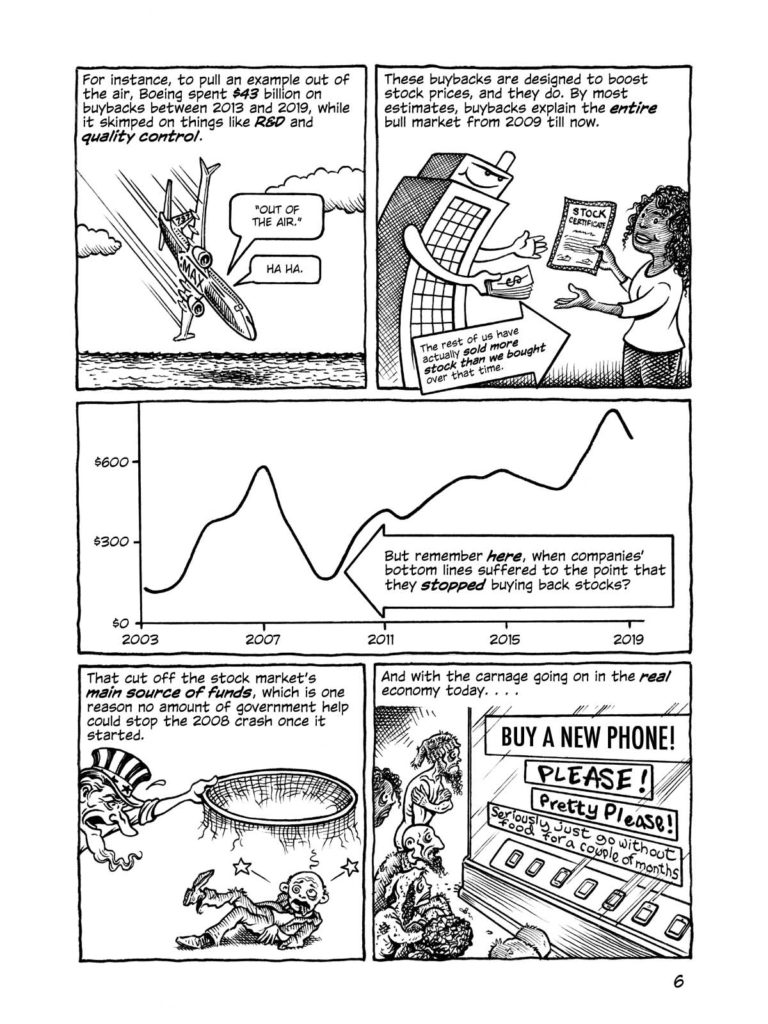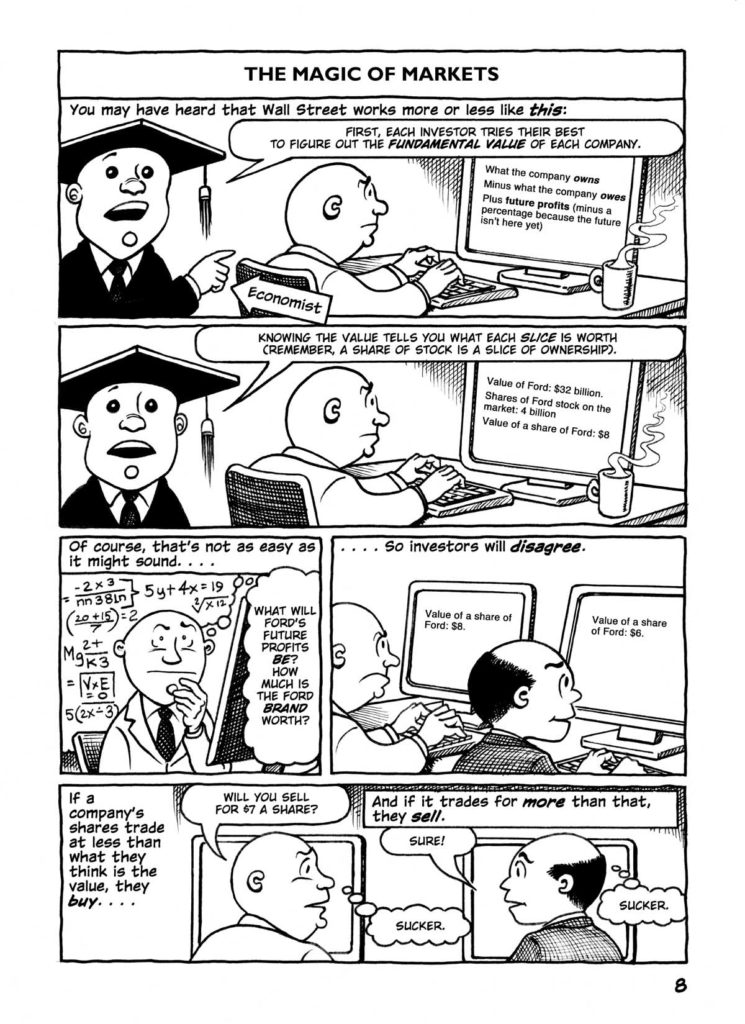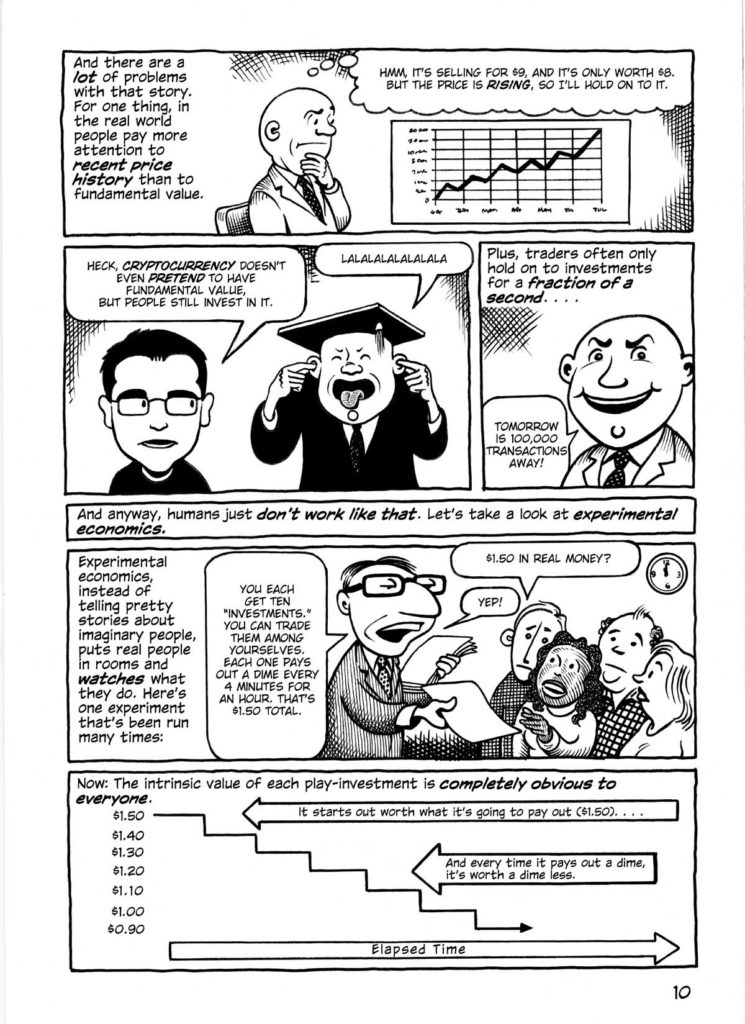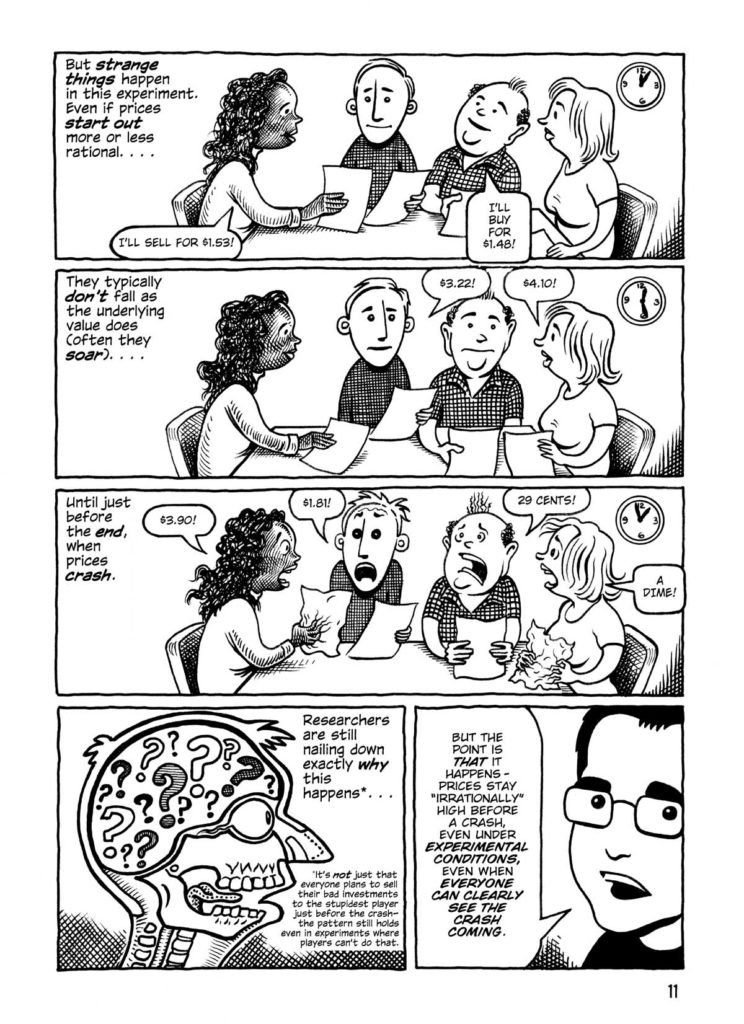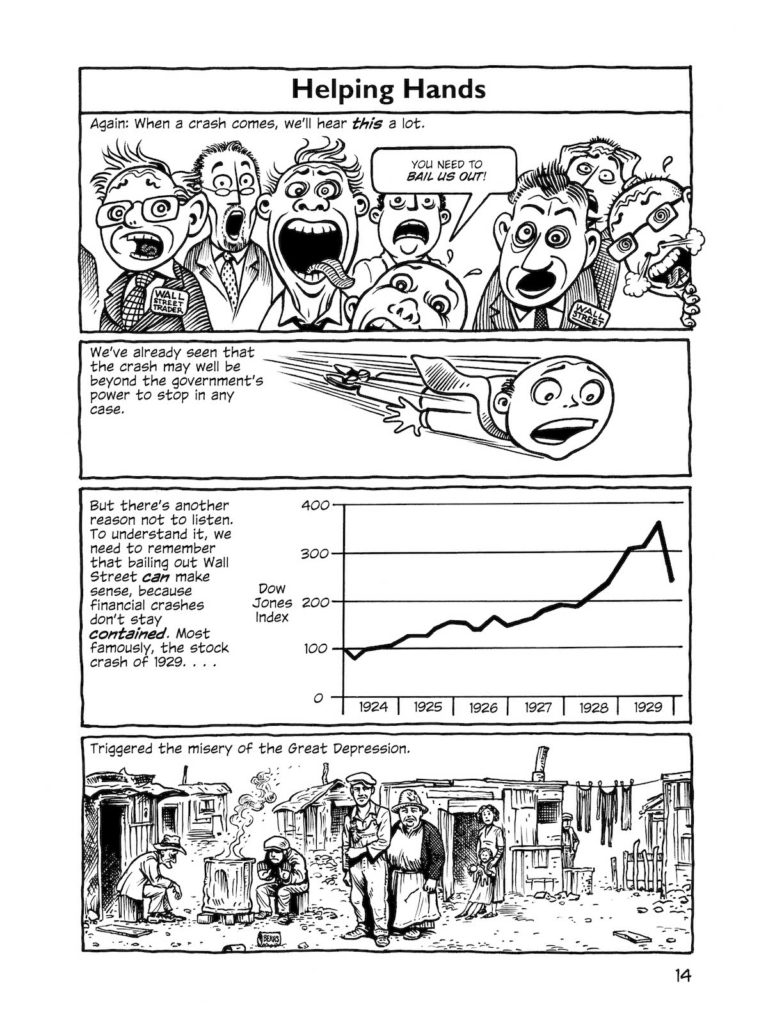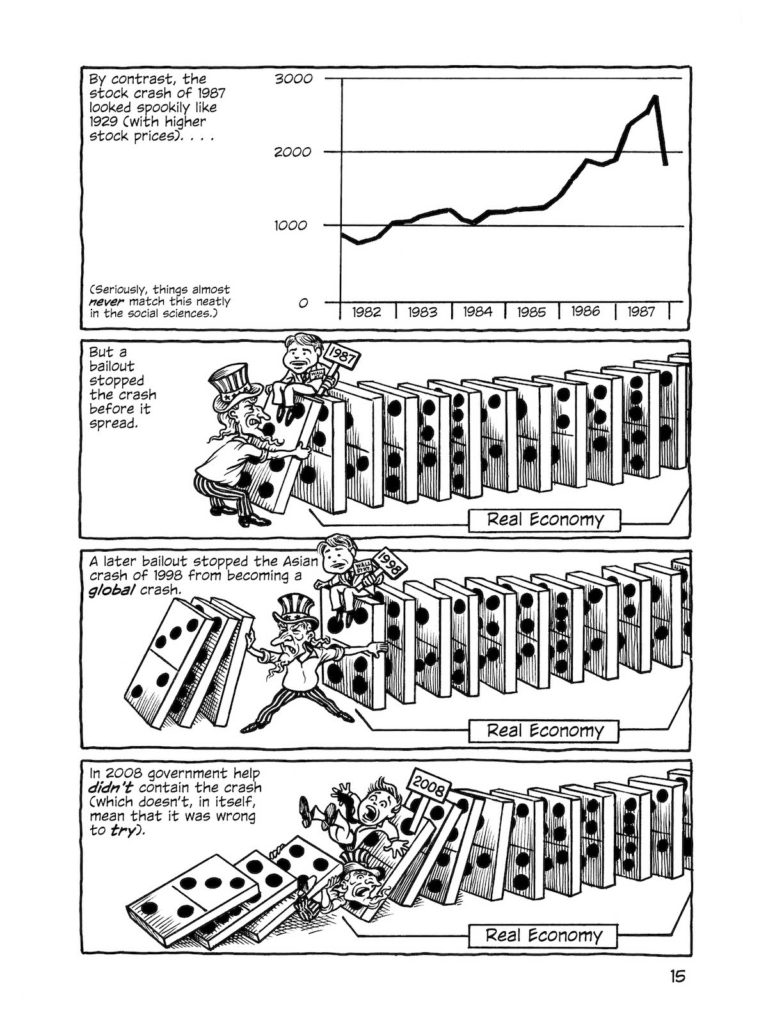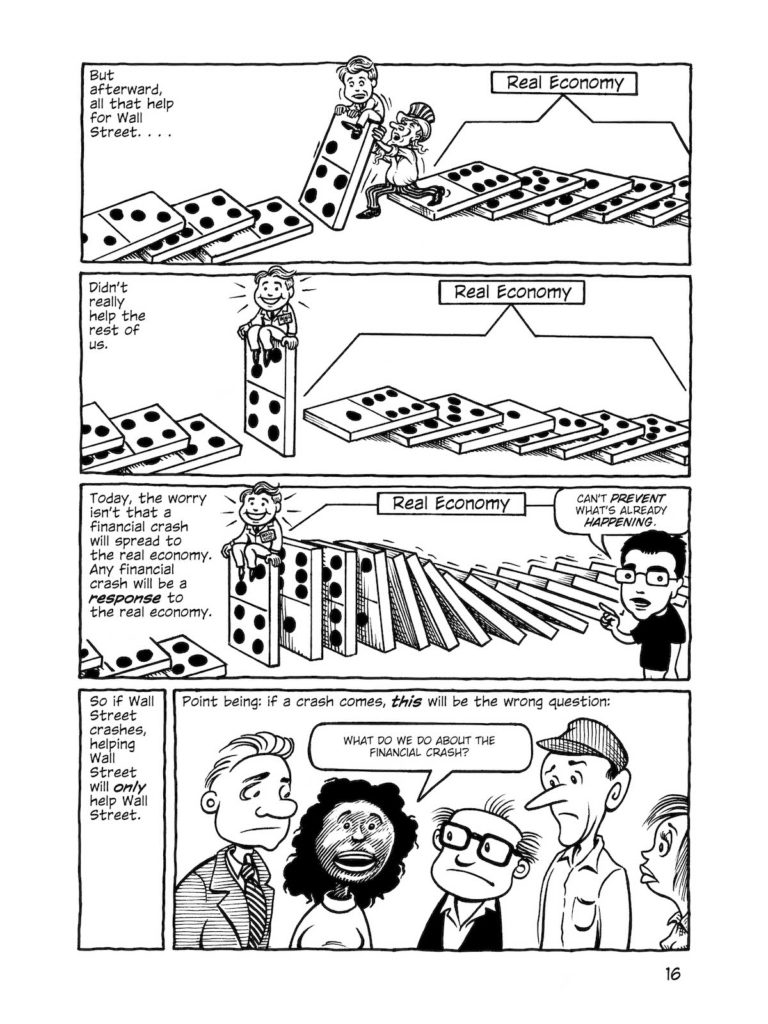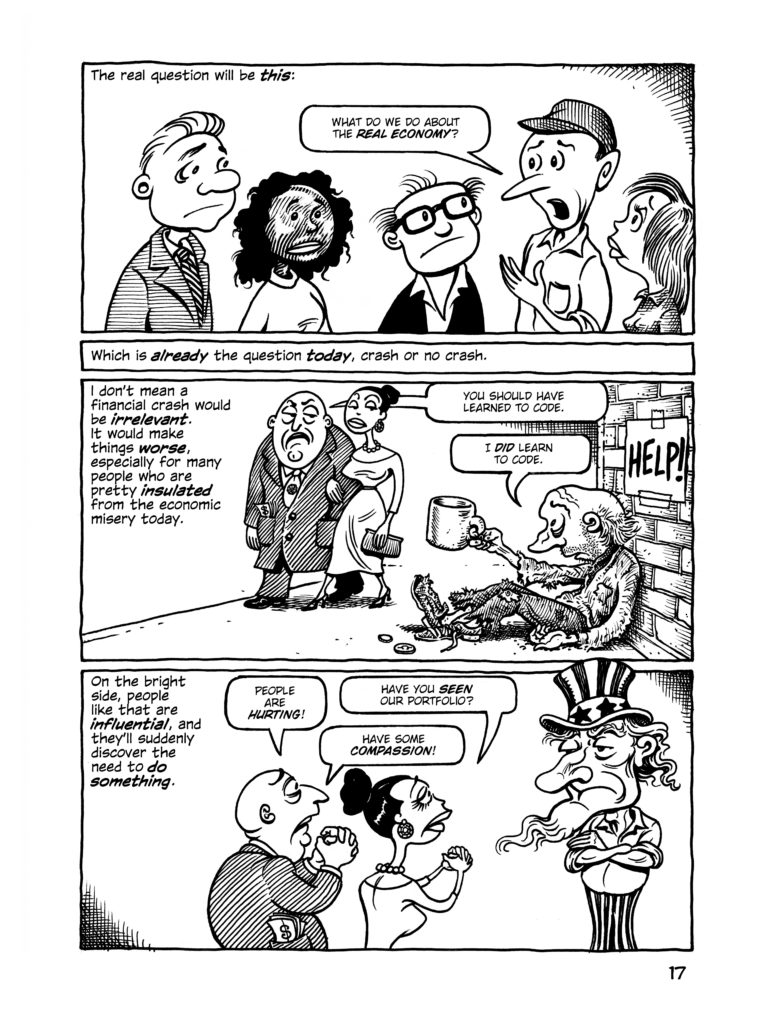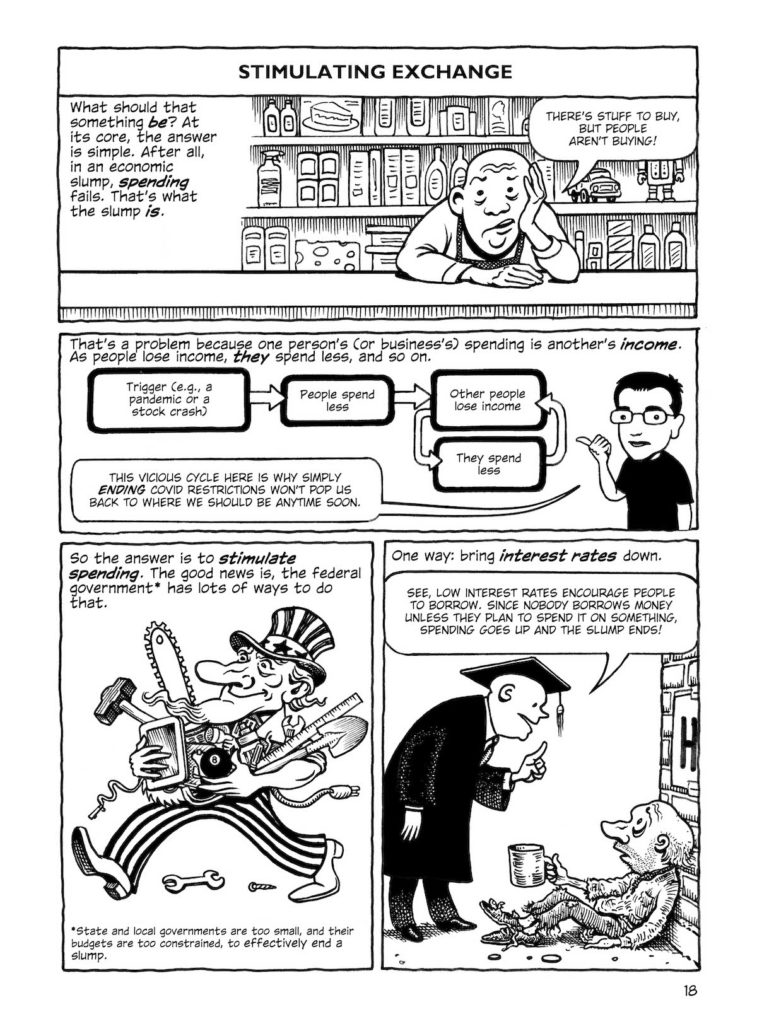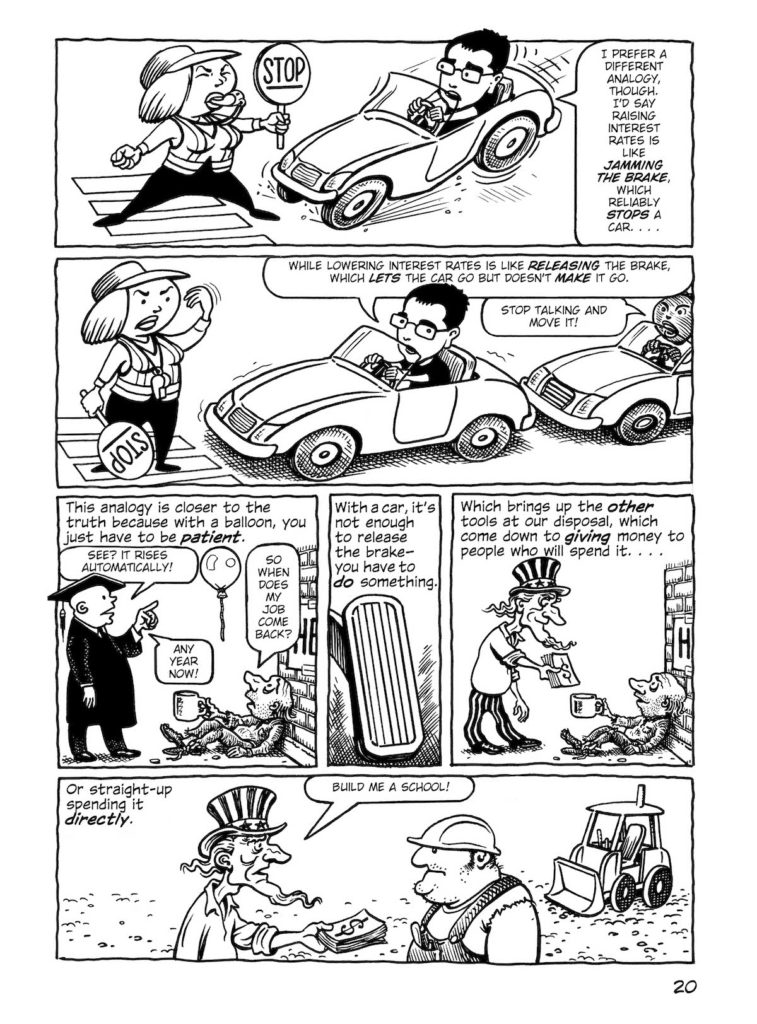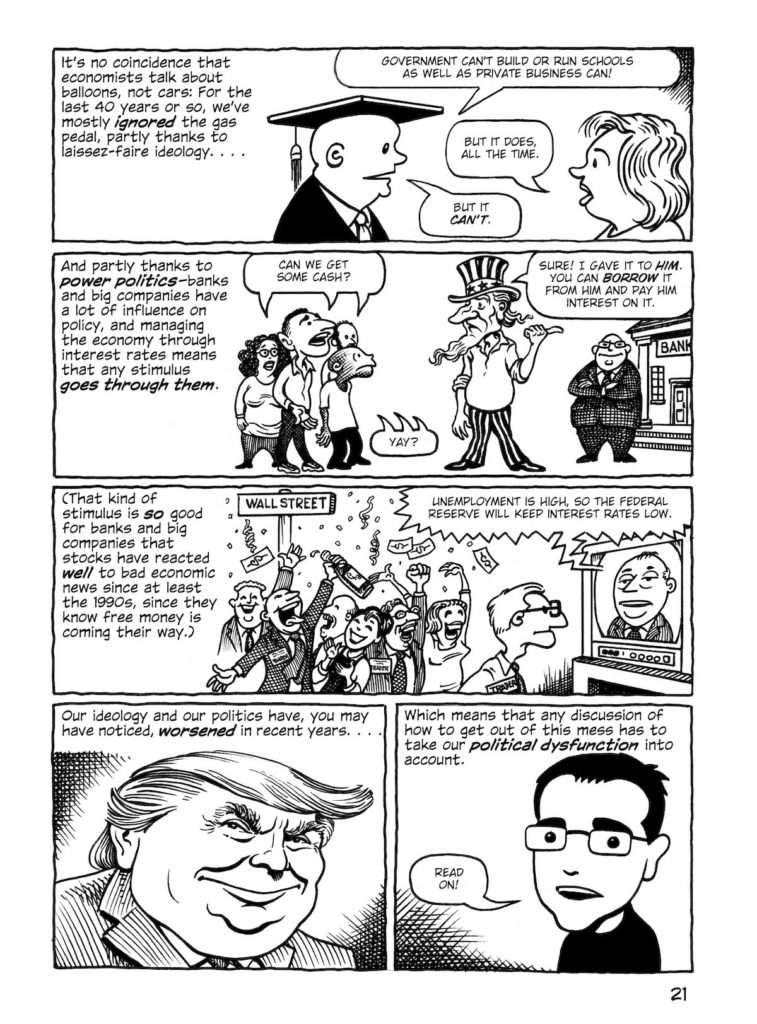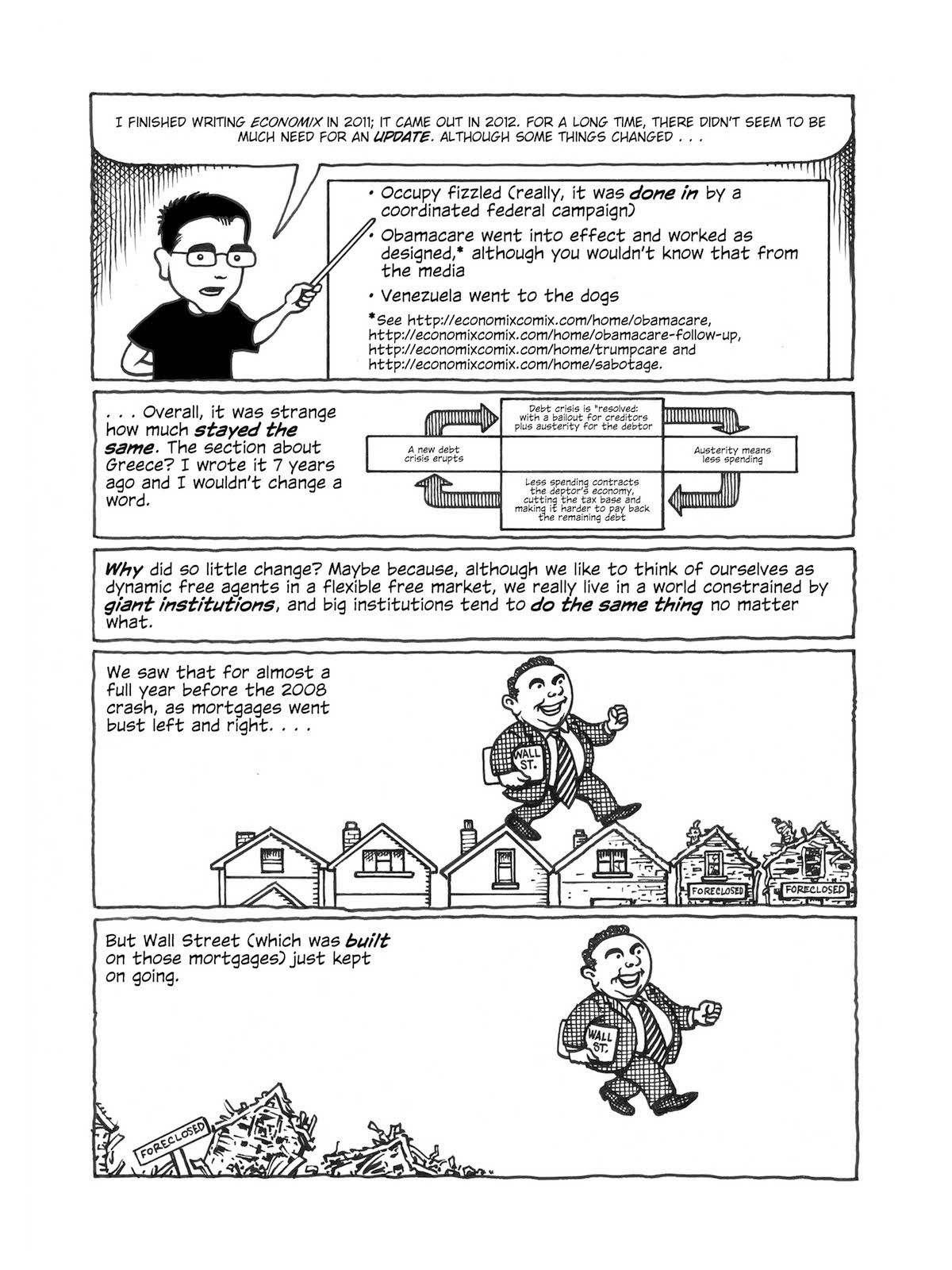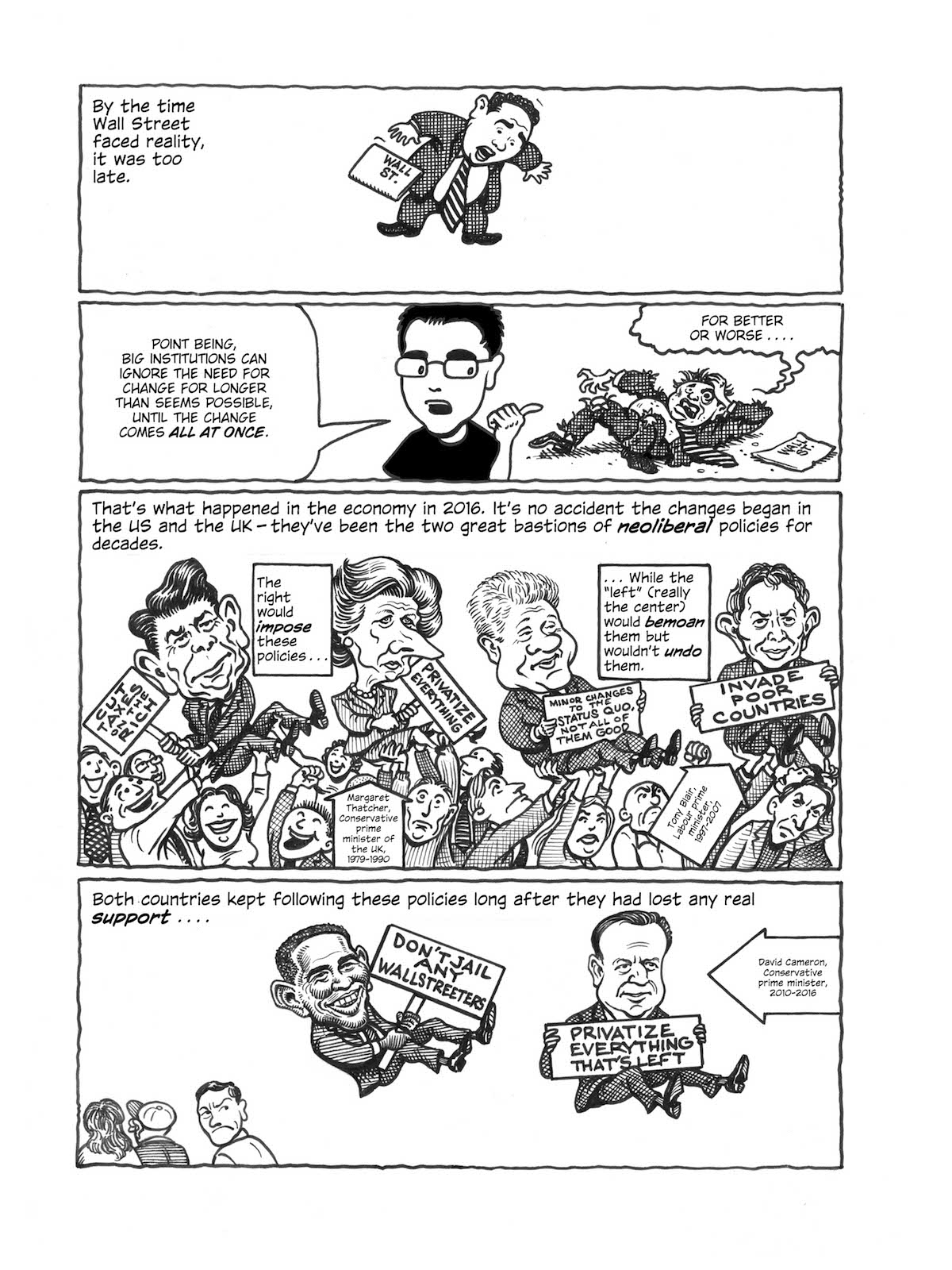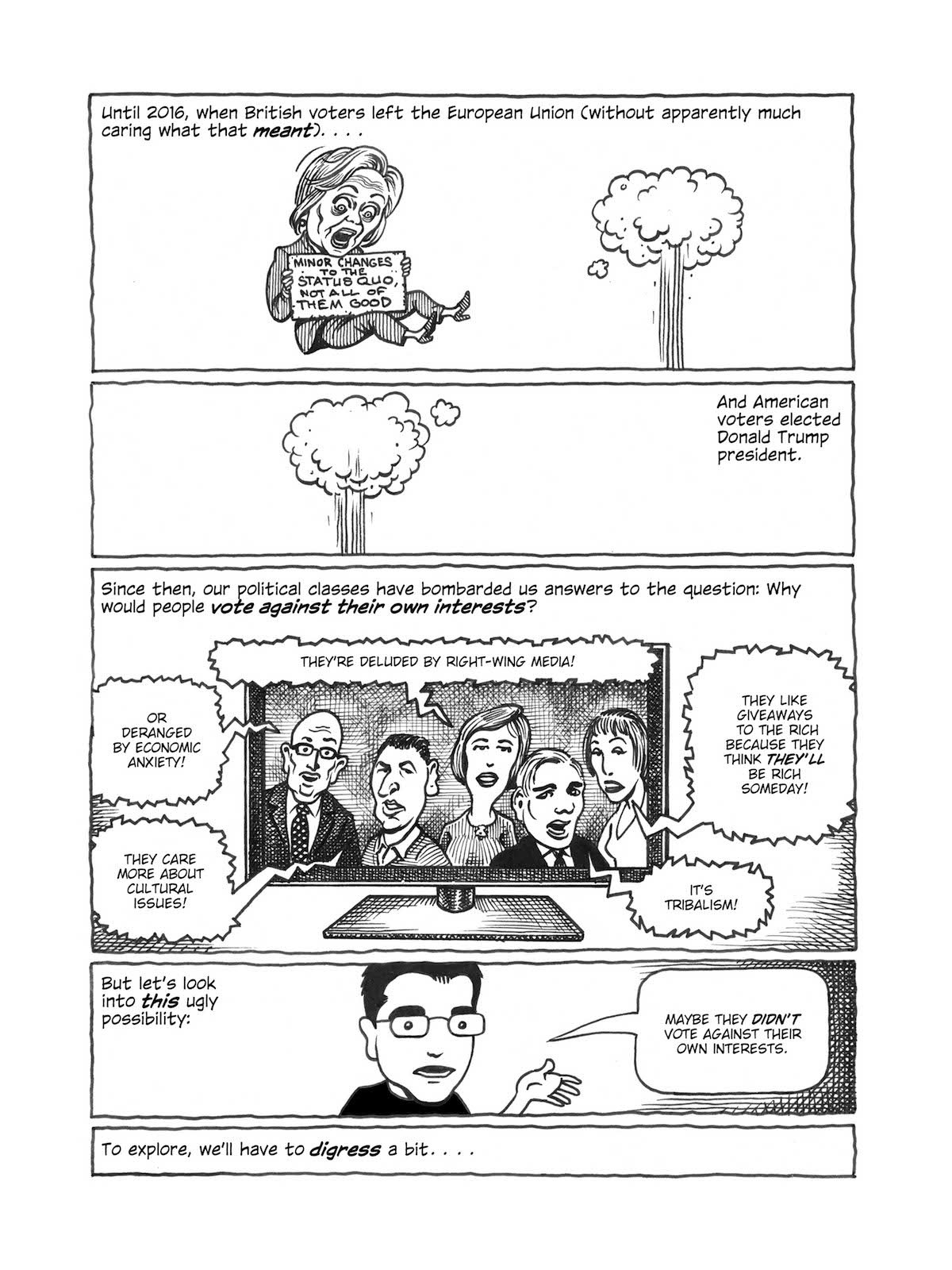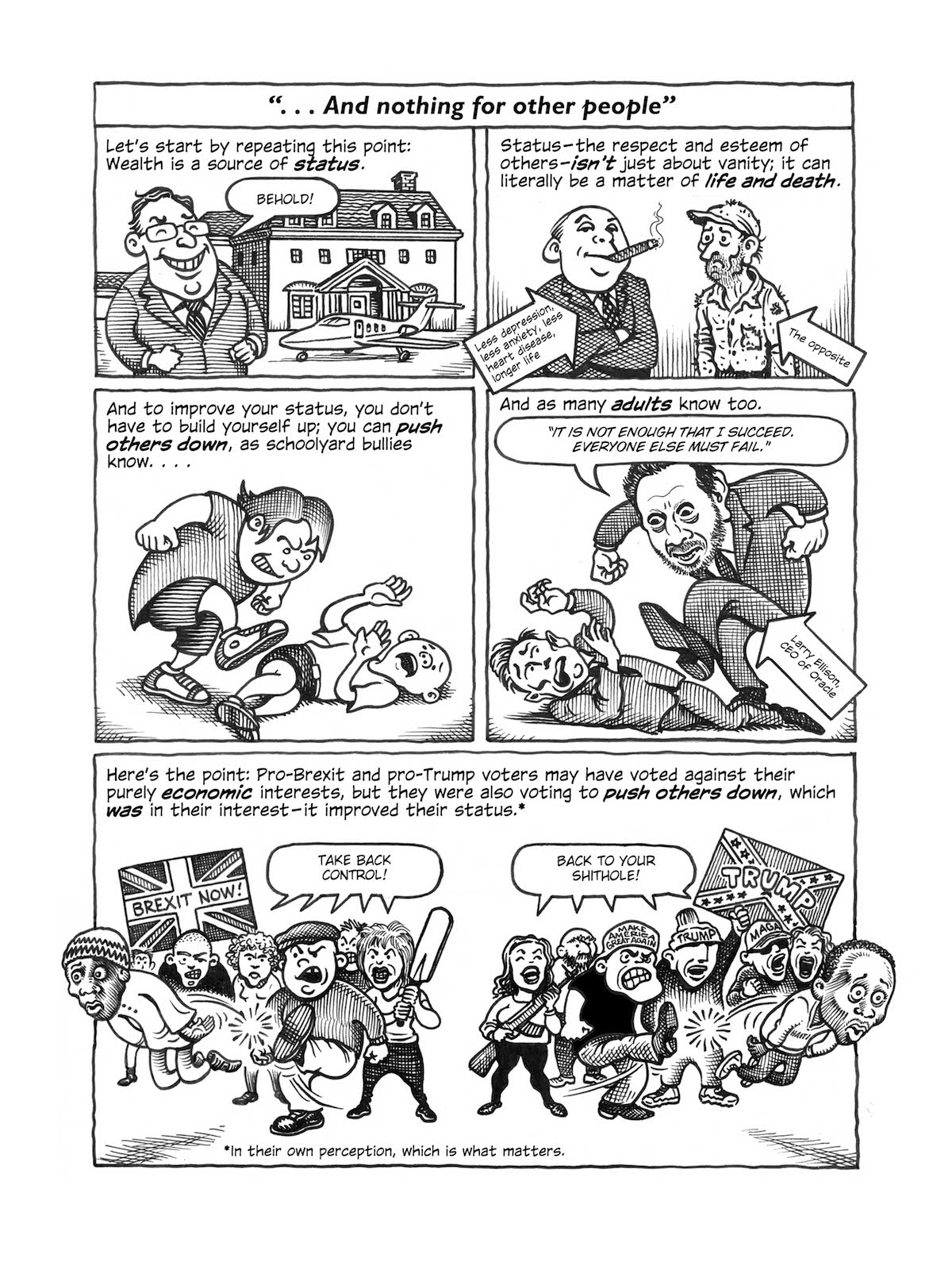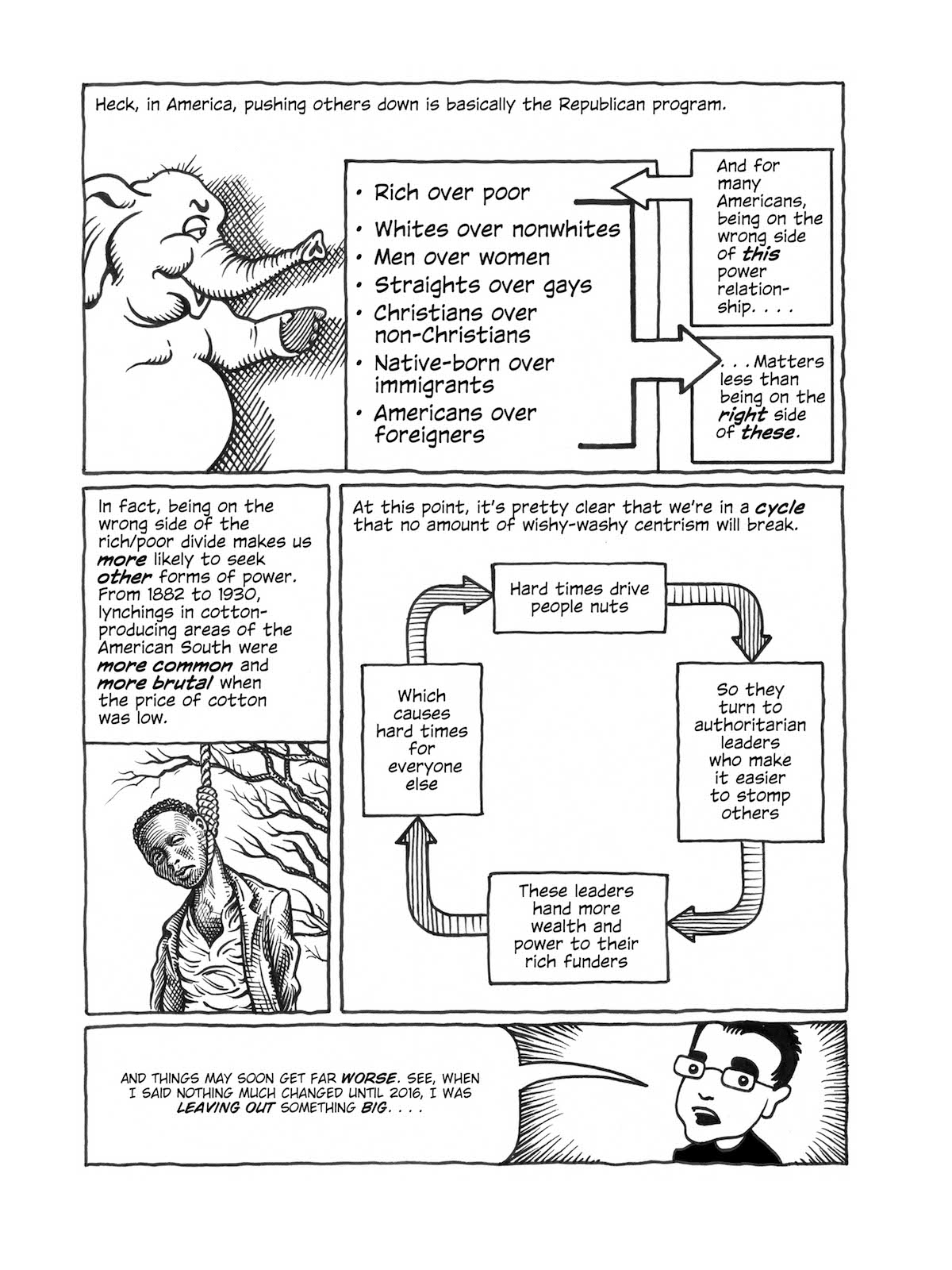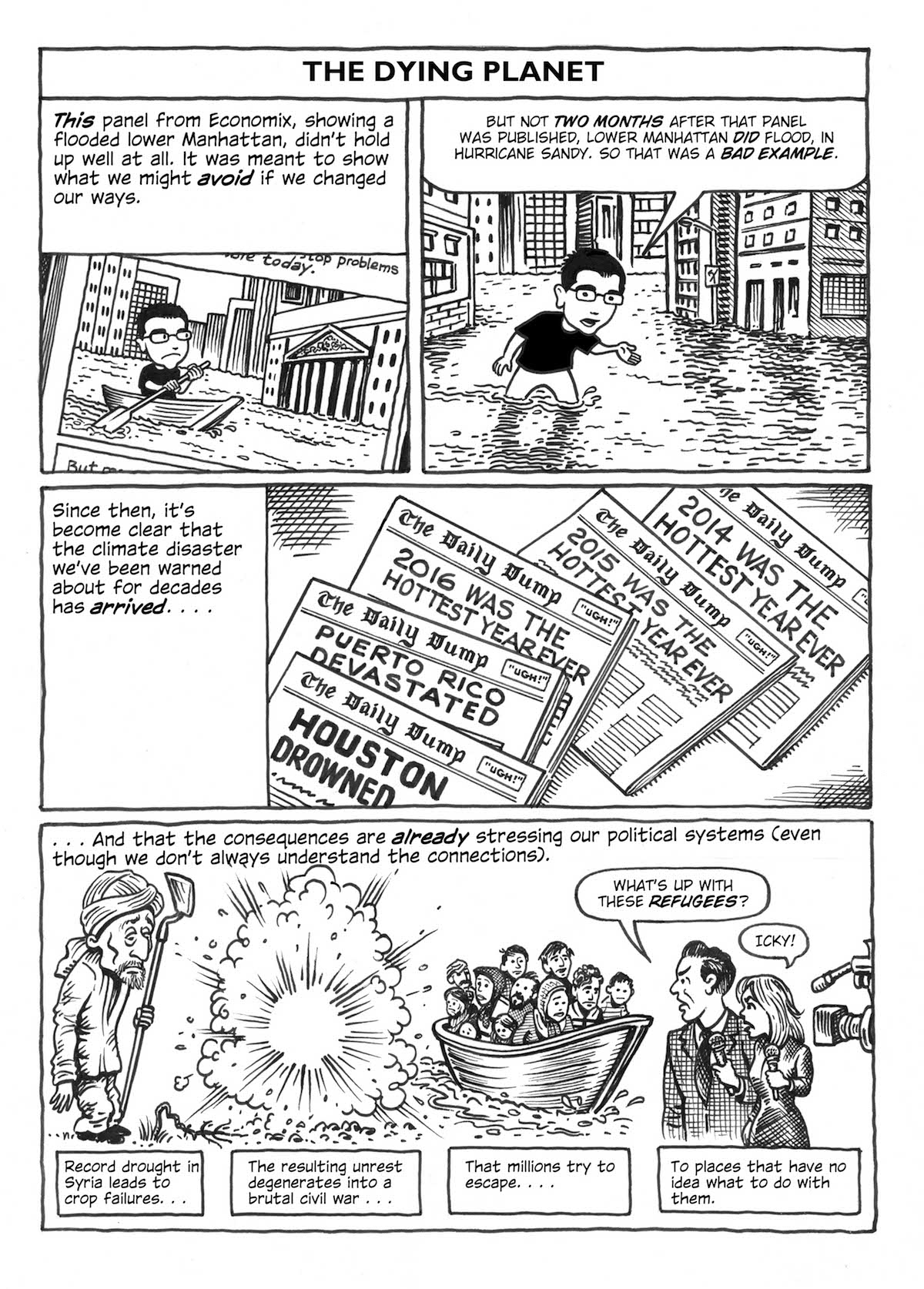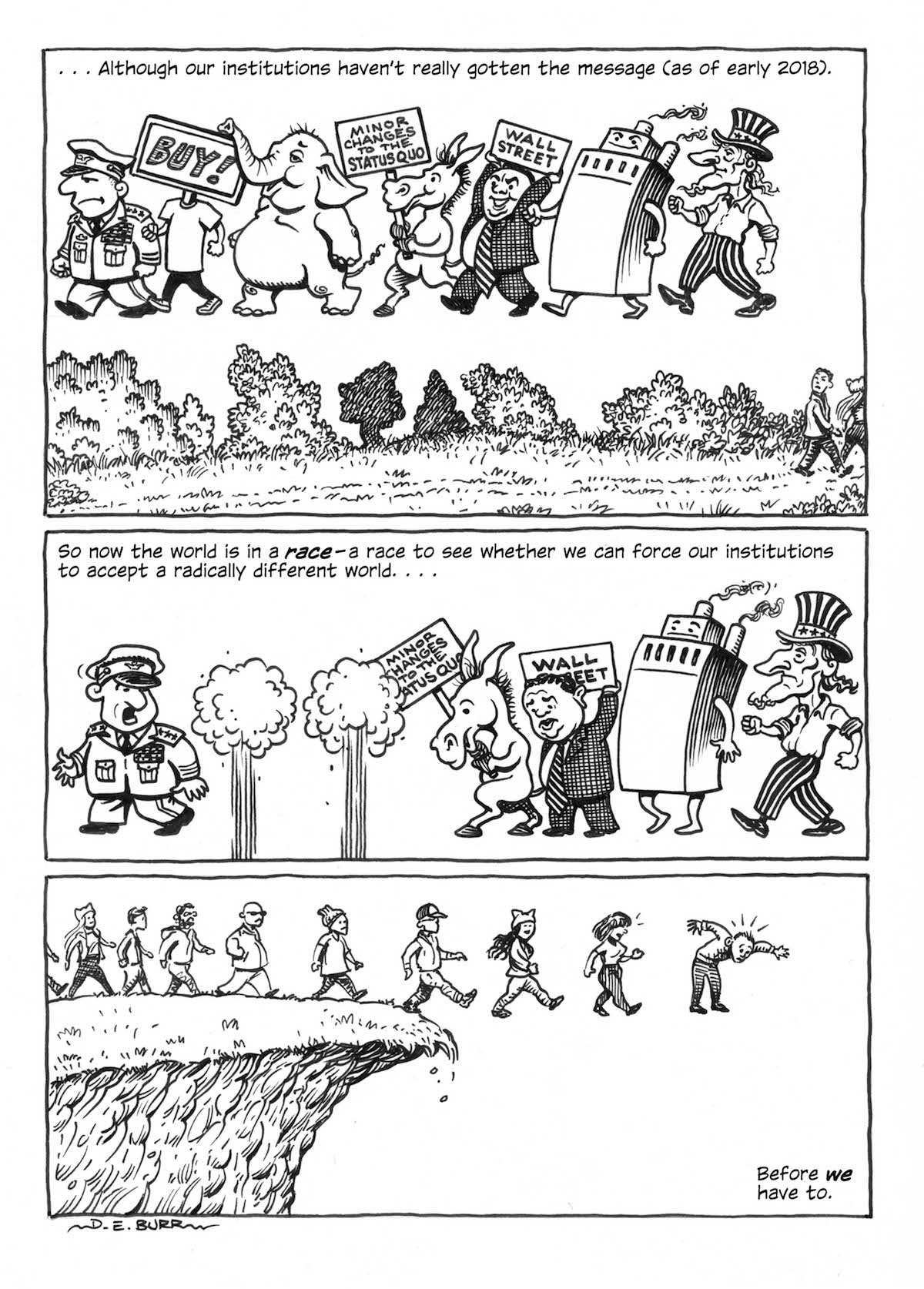There’s an article by Kurt Eichenwald in Newsweek making the rounds: “The Myths Democrats Swallowed That Cost Them The Presidential Election.”
To summarize, it says:
- Clinton lost because not enough liberals voted for her. They voted for Stein or stayed home. Now they’re horrified, and (in his phrase), “they can go have sex with themselves, and I mean that in a much cruder sense.”
- Liberals didn’t vote for Clinton because they bought into two “provably false” myths:
1) The myth of the all-powerful DNC—“The idea that the DNC was some kind of monolithic organization that orchestrated the nomination ‘against the will of the people’”
2) The myth that Sanders would have won.
Just to get any bias out of the way, let me say that I was a Sanders supporter—I maxed out my contributions to him—but I voted for Clinton and donated to downballot Democrats in the general. I know lots of Sanders supporters, and a few Trump supporters, but I don’t know any who didn’t vote, or who voted for Stein. (And if I did, I wouldn’t blame them for helping elect Trump unless they also live in a swing state, something that Eichenwald doesn’t mention). EDIT: Turns out I do know a couple of people who voted for Stein, but not in swing states.
In any case, let’s look at those “myths.”
Myth 2 is a minor point at best—Sanders could have won, as Eichenwald acknowledges, and nobody who voted for Stein cares much about a candidate’s real-world chances.
It’s the first “myth”—the all-powerful DNC—that’s the meat of Eichenwald’s piece, and it’s where Eichenwald goes very, very wrong
His points are:
1. The DNC itself is “an impotent organization with very little power.”
This is kinda true. But it’s also missing the point. Sanders supporters’ problems were with the Democratic establishment; for most of us, “the DNC” was shorthand for that. After all, there’s a lot of overlap between the DNC and the rest of the Democratic establishment (for instance, all DNC members are superdelegates at the convention.)
2. The idea that the DNC didn’t sponsor enough debates, or that they were held at the wrong times, is ridiculous.
Eichenwald is correct here. There were plenty of debates.
3. The idea that the DNC changed the rules to favor Clinton is also ridiculous.
Well, except for Obama’s reform that banned donations from lobbyists and PACs to the DNC. That was changed, and people—not just Sanders supporters—were upset at the time. And it clearly benefited Clinton, who had the big-money donors locked up from the start. At the very least, this was inept—it reinforced Clinton’s “smug, corrupt, out-of-touch insider” image.
And the big one:
4. The leaked DNC emails—the ones that showed the DNC collaborating with the Clinton campaign–weren’t a big deal. This is the core of Eichenwald’s argument, so let me quote him in full:
Almost every email that set off the “rigged” accusations was from May 2016. (One was in late April; I’ll address that below.) Even in the most ridiculous of dream worlds, Sanders could not have possibly won the nomination after May 3—at that point, he needed 984 more pledged delegates, but there were only 933 available in the remaining contests. And political pros could tell by the delegate math that the race was over on April 19, since a victory would require him to win almost every single delegate after that, something no rational person could believe.
Sanders voters proclaimed that superdelegates, elected officials and party regulars who controlled thousands of votes, could flip their support and instead vote for the candidate with the fewest votes. In other words, they wanted the party to overthrow the will of the majority of voters. That Sanders fans were wishing for an establishment overthrow of the electorate more common in banana republics or dictatorships is obscene. (One side note: Sanders supporters also made a big deal out of the fact that many of the superdelegates had expressed support for Clinton early in the campaign. They did the same thing in 2008, then switched to Obama when he won the most pledged delegates. Same thing would have happened with Sanders if he had persuaded more people to vote for him.)
This is important because it shows Sanders supporters were tricked into believing a false narrative. Once only one candidate can win the nomination, of course the DNC gets to work on that person’s behalf. Of course emails from that time would reflect support for the person who would clearly be the nominee. And given that their jobs are to elect Democrats, of course DNC officials were annoyed that Sanders would not tell his followers he could not possibly be the nominee. Battling for the sake of battling gave his supporters a false belief that they could still win—something that added to their increasingly embittered feelings.
This is very very wrong. And I can prove it. Let’s start with this:
Even in the most ridiculous of dream worlds, Sanders could not have possibly won the nomination after May 3—at that point, he needed 984 more pledged delegates, but there were only 933 available in the remaining contests.
Certainly, Sanders had an uphill battle from the beginning. But he “could not possibly have won the nomination after May 3”? That didn’t square with my recollection. So I went and checked. After his victory in the May 3 primary, Sanders had 1400 delegates or so (sources conflict); he needed 2,383 to get the nomination, which meant he needed more than were still available in the remaining primaries.
So Eichenwald sounds correct. But here’s the problem: Eichenwald’s math assumes that Sanders wasn’t going to get a single additional superdelegate—that all of Clinton’s superdelegates would stay with her no matter what.
And remember, in the very next paragraph, Eichenwald says this:
Sanders supporters also made a big deal out of the fact that many of the superdelegates had expressed support for Clinton early in the campaign. They did the same thing in 2008, then switched to Obama when he won the most pledged delegates. Same thing would have happened with Sanders if he had persuaded more people to vote for him.
But only one of the following can be true:
Either Sanders only needed to win the most pledged delegates, and then the superdelegates would have rubber-stamped the decision of the people,
Or Sanders needed to also win a whole lot more pledged delegates in order to overcome a bloc of superdelegates who were going to vote for Clinton no matter what.
If the first is true, Sanders’s path to victory after May 3, while very difficult, was not impossible; it didn’t become truly impossible until June. In that case, the DNC had no business jumping into bed with the Clinton campaign in May.
If the second is true, then Eichenwald is right that the emails are innocent, but the Democratic establishment was ready and waiting to enact a scenario that Eichenwald calls, in the very next paragraph, “an establishment overthrow of the electorate more common in banana republics or dictatorships.”
Either way, Sanders supporters have a legit grievance here.
And somehow Eichenwald forgets that it wasn’t just Sanders supporters who were upset at the DNC’s conduct. Here’s Ed Rendell on the subject of those emails: “Myself and other Democrats who were Clinton supporters, we have been saying this was serious. It truly violates what the DNC’s proper role should be. . . . The DNC did something incredibly inappropriate here.”
“Serious.” “Incredibly inappropriate.” Rendell is former Governor of Pennsylvania and former chair of the DNC. He’s not some dreamy hippie—he’s as much of a party insider as one can be.
There was a reason Debbie Wasserman Schultz resigned, after all. And remember: Clinton immediately welcomed her onto her campaign, in a smug, inept fuck-you to everyone except the Democratic elite. Eichenwald chooses not to mention this colossal own goal.
Point being, if liberals had a problem with Clinton and the Democratic establishment, there’s no reason to look for “provably false conspiracy theories.” There were plenty of legitimate reasons. Like the fact that Clinton was clearly a dangerously flawed candidate, and it wasn’t just us who thought so. Here’s a thoroughly mainstream reporter:
Why do partisans waste time on nothing-burger Clinton “scandals”—emails, Benghazi—when there are actual issues about her that are so deserving of criticism, such as the disastrous Libya policy she championed as secretary of state?
That reporter? Eichenwald himself, after the primary was over.
And let’s not forget the behavior of the Democratic establishment. Sanders supporters didn’t have legitimate worries about running a candidate who already had a 20-year-old industry devoted to hating her, who was such a bad campaigner that she nearly flubbed a locked-up primary against a goofy socialist, who was one of the most unpopular presidential candidates in history. Rather, we were being childish, refusing to be grow up and go with the “electable” candidate. We were sexists (never mind that almost all of us would have switched to Elizabeth Warren if she’d run). We weren’t worried that Clinton could very possibly lose in the general, we were just whining because our needs weren’t being catered to. We didn’t have legitimate reason to believe that our political insiders were not offering real solutions to urgent problems (as I write this, the arctic is 36 freaking degrees warmer than normal), we were trying to impose our own left-wing dictatorship.
I’m not exaggerating. Here’s a pro-Clinton journalist during the primary:
Violence. Death threats. Vile, misogynistic names screamed at women. Rage. Hatred. Menacing, anonymous phone calls to homes and offices. Public officials whisked offstage by security agents frightened of the growing mob. None of this has any place in a political campaign. And the candidate who has been tolerating this obscene behavior among his supporters is showing himself to be unfit for office.
So, Senator Sanders, either get control of what is becoming your increasingly unhinged cult or get out of the race. Whatever respect sane liberals had for you is rapidly dwindling, and the damage being inflicted on your reputation may be unfixable. If you can’t even manage the vicious thugs who act in your name, you can’t be trusted to run a convenience store, much less the country.
Sanders has increasingly signaled that he is in this race for Sanders, and day after day shows himself to be a whining crybaby with little interest in a broader movement. His vicious—and often ridiculous—attacks on the party whenever he doesn’t win a contest have inspired a level of ignorant fanaticism among a large swath of his supporters . . . Signs are emerging that the Sanders campaign is transmogrifying into the type of movement through which tyrants are born.
“The type of movement through which tyrants are born.” That’s, um, a tad hyperbolic. Is it strange if Sanders supporters (sorry, “Berniebros”) were turned off?
And that reporter? Yup, Eichenwald himself, in a piece telling Sanders to get out of the race. (Never mind that Clinton stayed in the 2008 race long after she had no path to victory, and when asked why, came up with this gem: “We all remember Bobby Kennedy was assassinated in June in California.” So she was sticking around in case someone shot Obama. Imagine Eichenwald’s outrage if Sanders had said anything so divisive.)
Oh, and the end of that piece (which, remember, was written during the primary) is instructive:
Probably none of [Sanders’ supporters] have much of a memory of the Vietnam War and the 1972 campaign. Then, the liberal wing of the Democratic Party won with the nomination of George McGovern and a large segment of the usual party supporters proclaimed they would vote for Richard Nixon instead. And look how well that turned out.
That reads as a not-very-veiled threat—run Sanders and many Democrats won’t vote for him and it’ll be Sanders’s fault, not theirs.
Even if it wasn’t intended as a threat, the message is clear: When the democrats ran a liberal and “a large segment of the usual party supporters” stayed home or voted for the opponent, the candidate was to blame. But when a (much smaller) segment of the usual party supporters stayed home for Clinton, they’re to blame. Because she was the serious, grown-up choice, you see.
Bullshit. We are facing the horror of President Trump—which really could lead to a tyranny—for many reasons, but a big one is that the Democratic elite shat the bed. They lined up behind a flawed, uninspiring, insider candidate in a year when the voters—not just some precious lefties, but everyone—clearly demanded something else.
And now Kurt Eichenwald is telling us that we should go home, stay out of the way, and vote for whatever “electable” candidate (which means, as far as I can tell, “electable except for all the assholes who won’t vote for him or her”) the elite wants to lose with next time.
He can go have sex with himself, and I mean that in much cruder terms.









